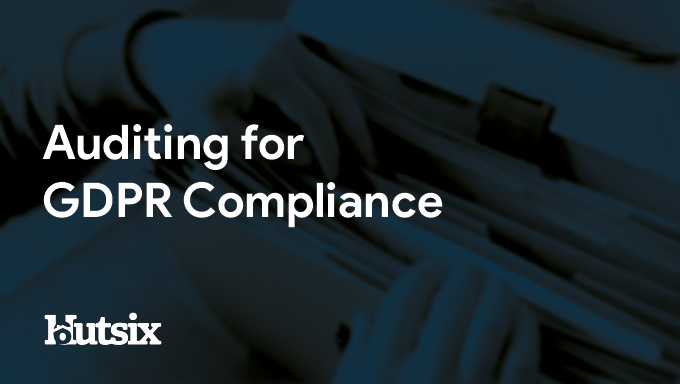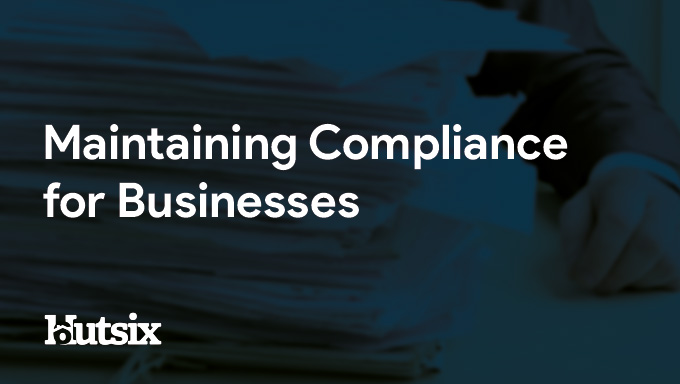What is Compliance Management? Meaning and Examples
Definition of Compliance Management
Compliance management refers to the processes and activities that organisations undertake to ensure compliance with laws, regulations, standards, and ethical principles that govern their operations. As well as this, it involves the development, implementation, and maintenance of policies, procedures, and controls to ensure that the organisation is operating in compliance with applicable laws and regulations.
Compliance management also involves ongoing monitoring and review of organisational practices, including regular assessments, audits, and inspections to identify and address any potential compliance risks.
In addition to complying with legal and regulatory requirements, compliance management also involves ensuring that the organisation is operating in accordance with ethical principles and standards. This can include developing and implementing codes of conduct, ethical guidelines, and anti-corruption policies to promote ethical behaviour and minimize the risk of misconduct.
Compliance management is a continuous process that requires the involvement of all employees, from top management to frontline staff. To be effective, organisations must establish a culture of compliance, in which all employees are aware of their obligations and are motivated to follow the rules.
Why Compliance Management is Important
Firstly, compliance management helps organisations to understand the laws, regulations, and standards that apply to their operations, and to assess their level of compliance with these requirements. This is important because the legal and regulatory landscape is constantly evolving, and organisations must stay informed of any changes to ensure they are operating in compliance with the latest requirements.
Additionally, compliance management helps organisations to prevent and mitigate risk. By identifying and addressing compliance risks, organisations can reduce their exposure to legal liability and reputational damage. For example, with proper adherence to the General Data Protection Regulation (GDPR), organisations mitigate the risks associated with a wide variety of information security threats, including data breaches, ransomware, and phishing attacks.
Compliance management also helps organisations to maintain the trust and confidence of their stakeholders, including customers, employees, investors, and regulators. By demonstrating a commitment to compliance, organisations can establish a positive reputation and maintain the trust of their stakeholders. This can have a positive impact on the organisation's brand and help to attract new customers, employees, and investors.
Furthermore, compliance management can also help organisations to improve their operational efficiency. By adhering to laws, regulations, and standards, organisations can establish effective processes, systems, and controls that can help to improve their overall performance and competitiveness. For example, compliance with data protection regulations can help organisations to protect sensitive information and improve data management processes.
Finally, compliance management is also important for promoting ethical behaviour. By establishing a culture of compliance, organisations can encourage employees to act with integrity and follow ethical principles. Again, helping organisations to maintain a positive reputation, minimize the risk of misconduct, and promote a healthy and safe workplace.
Examples of Compliance Management
A good example of compliance management is an organisation's adherence to data protection regulations, such as the UK GDPR in the United Kingdom or the California Consumer Privacy Act (CCPA) in the United States.
To comply with data protection regulations, organisations must first identify the personal data they process, and assess their level of compliance with the regulations. This might involve conducting a data mapping exercise to understand what personal data is collected, how it is used, and who it is shared with.
Next, organisations must develop and implement policies, procedures, and controls to ensure that they are operating in compliance with the regulations. This might include the development of a data protection policy, the appointment of a data protection officer, and the implementation of technical and organisational measures to protect personal data.
To ensure ongoing compliance with these data protection regulations, organisations must also monitor and review their practices on a regular basis. This might include conducting regular data protection impact assessments, audits, and inspections, as well as providing information security training for employees.
In the event of a personal data breach, organisations must also have a plan in place to respond effectively. This might involve conducting an investigation to determine the cause of the breach, informing affected individuals, and taking steps to prevent similar breaches from happening in the future.
Types of Compliance Management
Compliance management refers to the processes and systems an organisation uses to ensure that it complies with applicable laws, regulations, standards, and ethical practices. There are several types of compliance management, including:
Regulatory Compliance:
Regulatory compliance refers to the process of ensuring that an organisation complies with laws and regulations that apply to its industry and operations. This may include compliance with laws and regulations related to data privacy, information security, labour laws, and environmental protection, among others. Find out more about regulatory compliance.
Industry-specific Compliance:
Industry-specific compliance refers to the compliance requirements specific to a particular industry, such as healthcare, finance, or retail. For example, healthcare organisations must comply with regulations related to patient privacy and special category data security, while financial institutions will be focused on regulations relating to issues such as anti-money laundering and financial reporting.
Corporate Governance Compliance:
Corporate governance compliance refers to the process of ensuring that an organisation's operations and decision-making processes align with its mission, values, and ethical principles. This may include compliance with codes of conduct, whistle-blower policies, and ethical decision-making guidelines.
Information Security Compliance:
Information security compliance refers to the process of ensuring that an organisation protects its information assets and data from unauthorized access, use, disclosure, alteration, or destruction. This may include compliance with regulations such as the GDPR and the Payment Card Industry Data Security Standard (PCI DSS).
Information Security and Compliance Management
Compliance management and cyber and information security are closely related, as compliance with laws, regulations, and standards can help organisations to prevent and mitigate cyber and information security risks.
In 2023, organisations are increasingly reliant on technology to conduct their operations, store, and process sensitive information, and interact with customers and partners. However, this increased dependence on technology has also made organisations more vulnerable to cyber and information security risks, such as hacking, data theft, and cyber-attacks.
With the average cost of a data breach now estimated to be $4.35 million, compliance management is essential for organisations to ensure that they are operating in compliance with laws and regulations that govern cyber and information security, and to minimize the risk of cyber and information security incidents.
By investing in compliance management, organisations can demonstrate their commitment to protecting sensitive information, and promote a culture of cyber and information security within their organisation.
Compliance Management and Security Training
As we've explored, compliance management and regulatory compliance can be a challenge for organisations, making it essential for employees to receive regular training to stay up to date.
Providing employees with the right training also helps organisations establish a culture of compliance, promote ethical behaviour, and minimize the risks associated with non-compliance, such as financial and reputational damage.
By investing in effective and relevant training, organisations not only minimize the risk of non-compliance and other business risks, but they also help to ensure they are operating in accordance with relevant laws and regulations.
Security Awareness for your Organisation
Enjoyed our blog? Learn more about how Hut Six can help improve you security awareness with training and simulated phishing. Start a free trial now, or book a meeting with one of our experts.
Featured
Essential Steps for Security Awareness Training
Starting a security awareness training campaign? Here are 5 essential steps to help ensure information security success.
Malicious Insider Threats - Meaning & Examples
Malicious insider threats can cause massive problems. Here we examine some of the motivations behind attacks and methods of detection organisations can use to reduce risk.
5 Biggest Breaches of 2022 (So Far)
Five of the biggest and most significant data breaches, hacks, and information security attacks of 2022 (so far).
Auditing for GDPR Compliance
Questions to consider when auditing your business or SME for General Data Protection Regulation (GDPR) compliance.
Improving Employee Cyber Security
With human error responsible for many breaches and attacks, we offer some helpful areas for improving employee security compliance.
5 Cyber Tips for your Business
Essential cyber tips for helping your business or SME improve information and cyber security.
The Benefits Of Maintaining Compliance For Your Business
By maintaining compliance for your business you can ensure operational efficiency, reduce financial risk, enhance public trust, engage your employees and realise your mission.
Top 5 Phishing Trends in 2022
Insights, trends, and statistics from the world of phishing in 2022.
10 Steps to Cyber Security
The main concepts of the Nation Cyber Security Centre's '10 Steps to Cyber Security' guidance.
Cyber Awareness Part II: The Psychology of Behaviour Change
Part two in our blog series examining how the psychology of behaviour change will help us deliver effective awareness campaigns.










